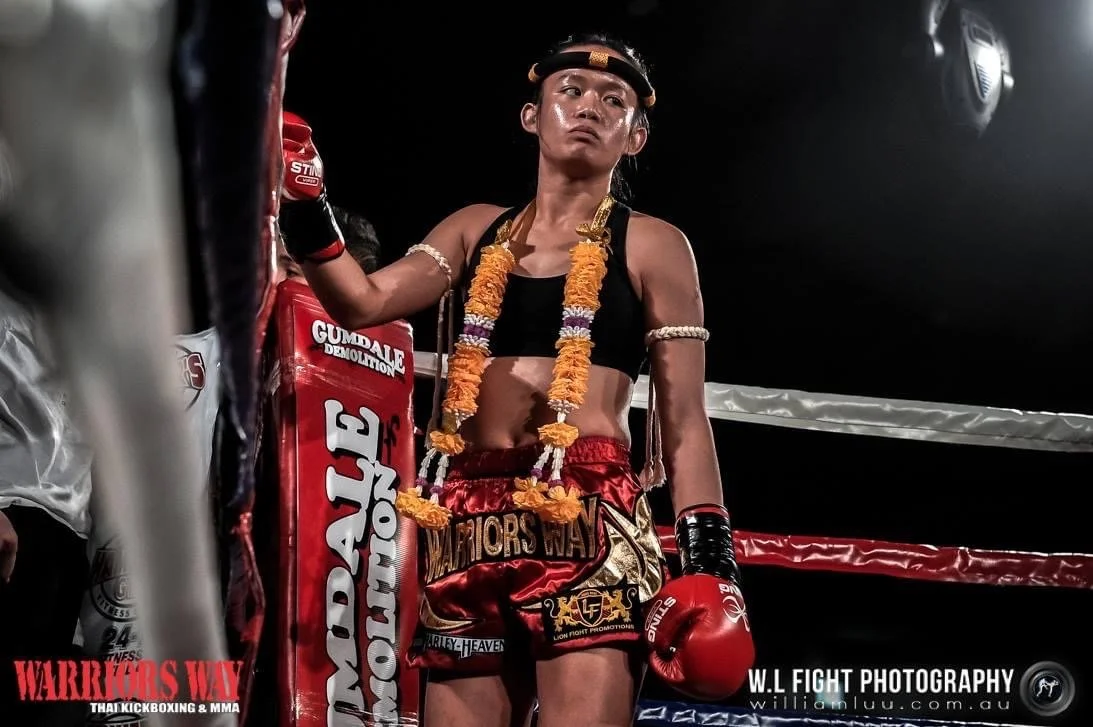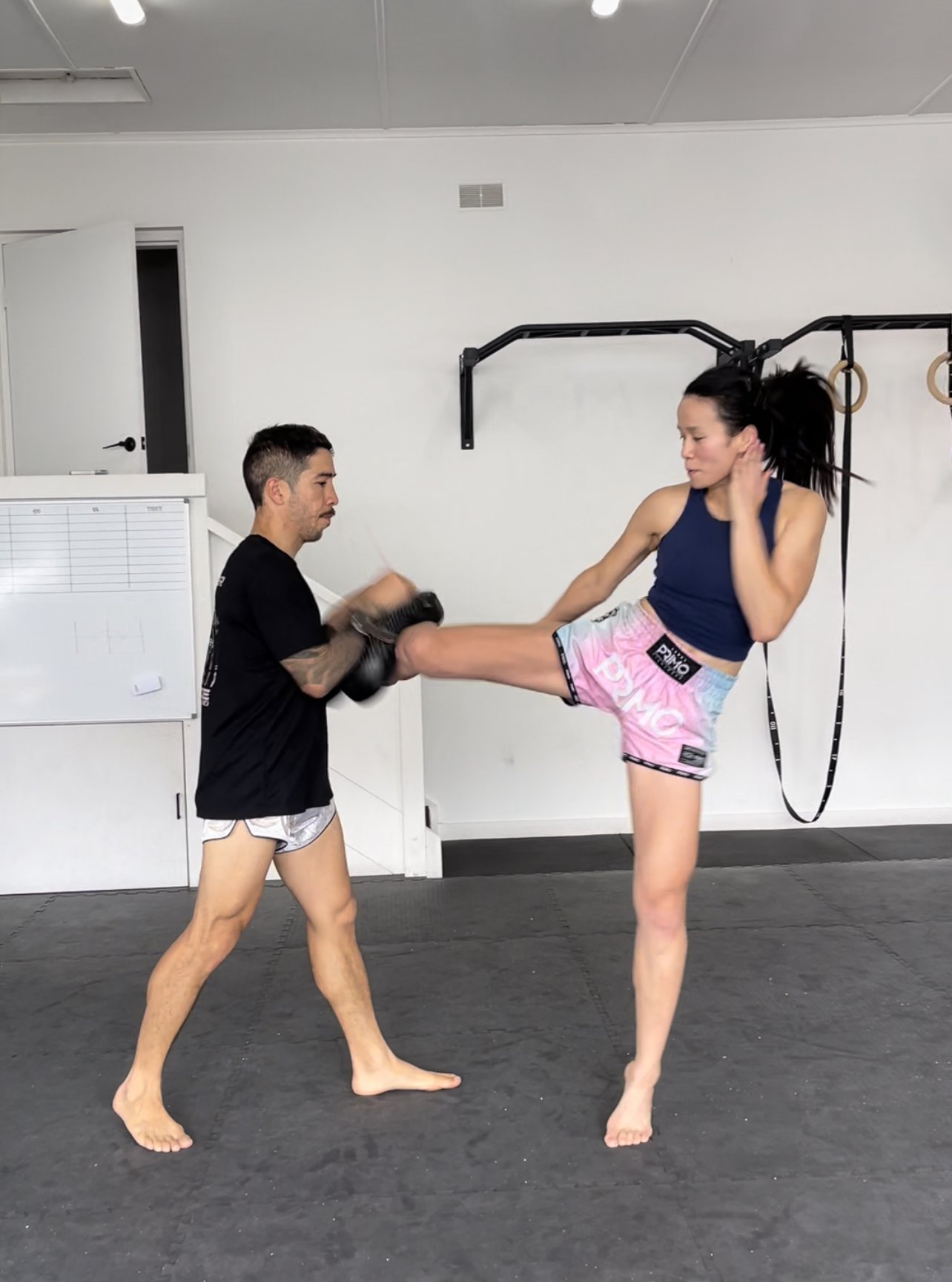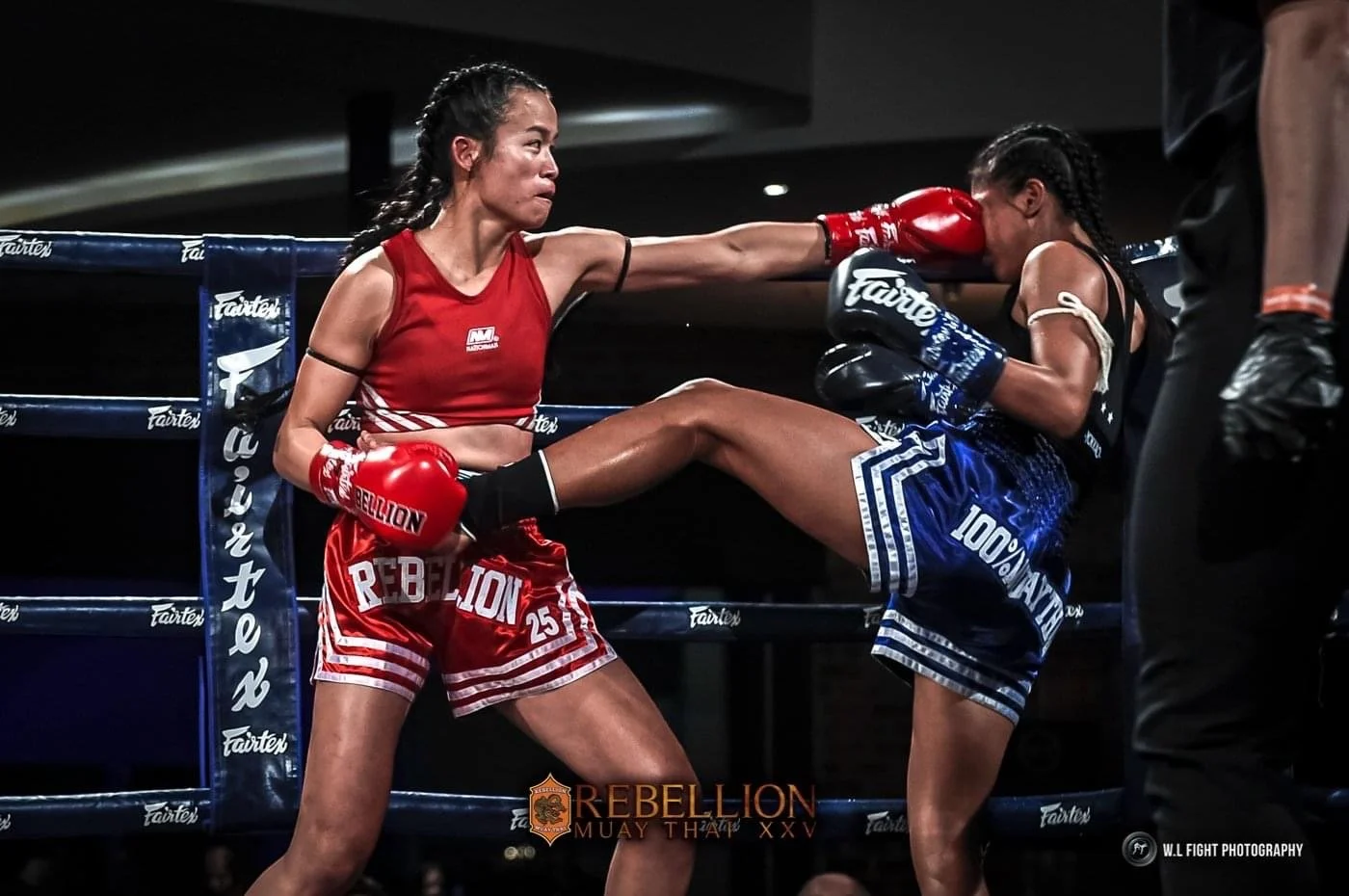Starting Your Fight Journey! 7 Aspects of Fight Camp.
Lets talk about all the different aspects of fight training and how it all comes together! There is so much to any sport and preparation for competition!
Today we talk about these 7 aspects which I have experienced and seen from competing in Muay Thai - the to-dos and what not-to-dos to get you fight ready and fit!
Pre Fight Camp State / Maintenance
Skill Training
Strength and Conditioning
Nutrition & Weight Management
Recovery
Wellbeing and Stress Management
Doing your Homework
PRE FIGHT STATE OR MAINTENANCE
It’s normal and healthy to switch off after fights! Recover, reconnect and regain balance in your own ways. However, good nutrition, reasonable fitness and a healthy walk around weight will make the transition back to camp much easier. If you normally cut 6kgs for a fight, walking around 10kgs over will make your fight camp extra uncomfortable. I like to enter into fight camp reasonably fit, with no major injuries and a relatively good training routine. Just so that the pick up in intensity of the camp won’t be a huge shock to the body. You don’t want to be unusually sore, fatigued and undernourished trying to get through your camp.
An easy way to manage this is to watch what you eat (enjoy yourself but also be reasonable lol) and stay active. As you enter into your fight camp training period, scheduling your weeks will help in making sure you cover all aspects of camp. Schedule your training, strength sessions, recovery and nutrition.
SKILL TRAINING
One of the most important part of fight camp is getting your skill training done well. Skill training in Muay Thai is your pad work, bag work, sparring, clinching, and drilling. This is where you improve your skills and prepare for the fight mentally and physically. For known opponents, you may train a certain fight strategy and drill responses to their strong weapons. Here is also where you get confidence in your ability to fight, through hours of training and repetition. Expect the intensity of your skill training to increase as your get closer to fight day. You want to be feeling good, fit, strong and ready for your fight. There is a taper period (varies from camp to camp) to let the body rest, make weight and reenergise for the actual fight. I like to taper on fight week as I’ll be shifting focus on water loading, and making weight for weigh ins (usually 24 hours prior).
Personally, I have skill training sessions from Mondays to Saturdays. Most days include 2 skill training sessions during camp. There is no right and wrong to this - some train once a day and some have a few more rest days. Once you know your body, stick with a routine that works for you. Chat to your coach to make sure you’re on track and getting in all the work you need before the fight.
STRENGTH AND CONDITIONING
I feel it important to have a strength and conditioning coach. A coach that can program well, guide and help you improve your weaknesses. Every body is different - a good coach will be able to help you with your weaknesses and get you to peak physical condition for the fight. This includes - strength training, cardio, endurance, and injury prevention. Not every strength and conditioning coach may be knowledgable in preparing you specifically for your sport - be sure to do your research before starting with a coach. Eg. a coach specialised in body building may not be the best to pick for preparing you for a Boxing fight.
For me, I have dedicated strength sessions 2-3 times a week. My sessions aren’t long (45 minutes) and are designed to assist me in performing better in Muay Thai. During fight camp period, there are added cardio and endurance training sessions, also designed by my strength coach.
When I first started competing (at Interclub and amateur level) I did not have a dedicated strength coach. I did what we normally do in classes and some extra basic strength training on the side. I do recommend taking your strength and conditioning seriously though - I am not a naturally athletic or strong person lol but through years of my coach’s guidance and patience I have seen huge improvements in my body and how I feel in the ring.
NUTRITION AND WEIGHT MANAGEMENT
Fighting can become extra stressful when you are unsure about how to manage your nutrition and weight. When starting out, coaches will usually recommend you fighting close to your natural walk weight. The process of “cutting weight” is something you’ll have to learn and manage as you progress in your fight career. You will get better and more acclimatised to it but at the start, it can be overwhelming.
A diet of harsh restricting is not the way. I’ve seen many athletes, especially women suffer irreversible health issues from this method of dieting and walking around underweight for too long. I myself have had awful weight cuts and suffered from irresponsible dieting. Getting advice from a qualified nutritionist with experience with your sport is recommended. Most fighters I know either have a nutritionist or had one (and they now know how to manage their weight and nutrition). Nutritionists usually have you get a DEXA scan and talk you through the process of getting down to your desired fight weight.
If you are generally quite aware and knowledgable about nutrition and how your body feels with food, it’s not to say you can’t manage your own diet. The general weight cut steps like watching your carbohydrate and salt intake on fight week, water loading protocols, prior heat acclimatisation, and sweat protocols (sauna, bath, sweat suit) that work for you, can be good enough to get you to a successful weigh in. You’ll learn along the fight journey what you can healthily cut down to to fight. For me, I am comfortable with a 4-5kg weight cut. Men usually are able to cut more than women - something to remember for the girls. Our fellow male teammates may be cutting 8-10kgs easily but for us, it is harder and 100% not healthy to do so.
I would recommend always doing a weight cut with a professional with you, in person. I’ve heard stories of fellow fight friends passing out trying to cut in a sauna or even me personally getting stuck with a friend on a sweat suit run under a tree trying to cool down, as we both were stupidly trying to run in the heat in sweat suits with no one with us. It got too hot halfway through our running track and we both felt like passing out.
In summary - seek professional help or guidance if you are unsure or would like a second opinion! Start small with any weight cuts and be sure to manage your health more importantly through the process.
RECOVERY
During camps, you’ll most likely feel fatigued, sore and mentally tired from all the training and added pressure. Taking time to recover every week or even small recovery sessions daily, is important. Having a stretch before bed, going to the sauna, ice baths, massages, yoga… be sure to schedule in relaxation and recovery time. All this will play a part in you being in top shape for the fight, and also longevity in your sport.
Recovery will help with preventing injuries, burnout and mental fatigue. Every one has their preferred methods of recovery. Have a chat to your coaches for advice and when you should be doing these sessions during your training week. I like to have a full Sunday off from intense physical activity. My go to is staying quiet at home, walking the dogs and recently a session of Hot Yoga. Massages, sauna sessions and regular stretching has also been a great in helping me recover during camp.
WELL BEING AND STRESS MANAGEMENT
It is normal to feel levels of stress and pressure during preparations for a fight. I personally am quite an anxious and stressed out person during camps - it has been something I’ve needed to actively work on to manage. Having to juggle work, training and life during camp is a challenge for most. I don’t have a sure method to help with this. For me over the years, vocalising my stresses has helped alleviate the internal pressure build up. I’ve seen a sports psychologist at one stage of my career when I felt that I wasn’t dealing with pressure well at all. Tools she provided me were useful to get me in to a calmer, more functional state. Going into training all wound up, tense and stressed will make for an unproductive session. Same goes to managing stress and pressure on fight day. Finding tools that help you whether it’s breathing exercises or vocalising your thoughts will assist in having a successful camp and career.
DOING YOUR HOMEWORK
With a known opponent, doing your homework comes in handy! No need to over obsess until you’re stressed about them .. but knowing their strengths and weaknesses is helpful. Coaches usually will do this for you - watching their prior fights and learning their patterns. No harm in you watching and taking notes alongside so you know more of what you’re up against. In saying that, still focus on you! Work on your strengths, your style and bring that on fight day. Just be aware of your opponent’s strengths and weaknesses.
I hope you enjoyed this little write up on fight camp and the fight journey. There is so much that goes into a camp and no one perfect way to do it. Enjoy the process and find what works for you! Best of luck :)





